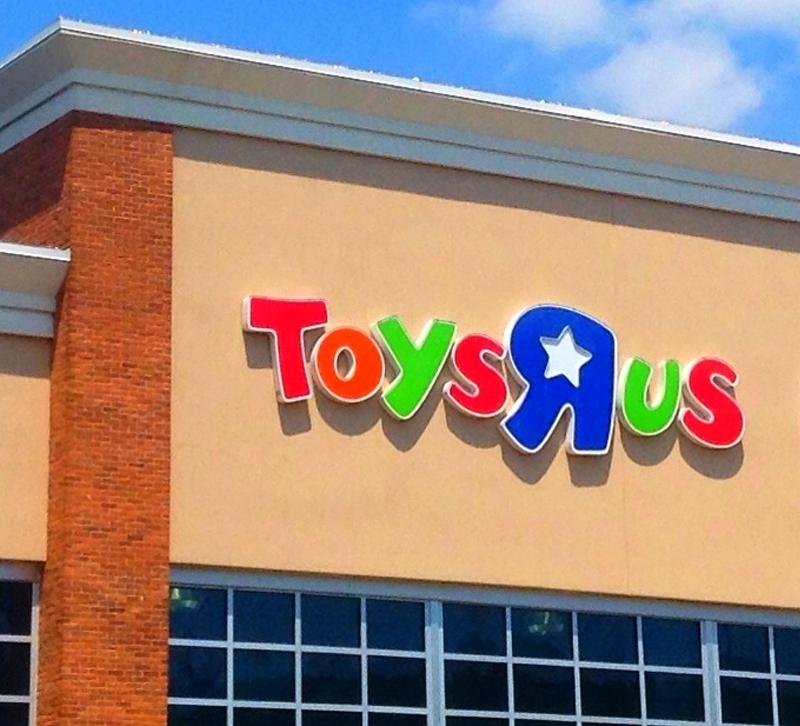Last week, the retail industry — and the hundreds of people still humming "I don't wanna grow up, I wanna be a Toys R Us kid" song — got a nasty shock when toy retailer Toys R Us announced it would be closing all of its U.S. stores. Now today, Claire's, the tween jewelry and accessories store, filed for Chapter 11 bankruptcy.
It may seem like a bleak time for retailers, but for lighting and home furnishings showrooms, there are a few lessons to be learned. Here are three lessons from this latest string of closures and bankruptcies.
No service is safe
The internet can do many things, but it cannot pierce ears. That's the saving grace Claire's was relying on. No matter what, customers would have to come to their stores if for no other reason than for customers to get their — or their child's — ears pierced. In addition to earrings, the store also sells earring holders, jewelry boxes and matching necklaces and bracelets, so customers wouldn't likely leave the store without a few extra purchases.
On top of that, Claire's mainly sold to teens, tweens and younger kids — a segment of the population less likely to have credit cards, which would enable them to buy online, and still more likely to visit malls, which have seen a drastic drop in foot traffic.
Not quite. Despite the fact that the company has pierced "over 100,000,000 ears worldwide," according to Chief Financial Officer Scott Huckins, the company filed for Chapter 11 bankruptcy in Delaware today. Huckins sites the decline in mall traffic and the company's debt load, which cost it $183 million in interest payments each year, as key reasons for the filing.
The Lesson: In this economy, few services are truly safe from the internet. Online shopping has vastly improved, and now two generations have been raised on it and trust it. That's not to say that every service should fear the internet — at the moment, you can't get your car fixed online, but in the future, who knows? — but the point is to never think that it can't happen to your business.
You don't necessarily need to sell online to compete. Having a well-functioning website and a thorough Google My Business page will go a long way in helping customers find your business, but your business might ultimately benefit from having a compelling hook to get customers into your store — an event, an appointment with a knowledgeable sales associate, even a drink.
Omnichannel matters
In the 1980s, The Wall Street Journal ran a story on Toys R Us, praising its innovation and use of computers. What kept the company one step ahead of everyone else, the article read, was the company's ability to track consumer purchases through computers. With this data, the company was able to better predict which toys would become best sellers long before their competitors. This helped Toys R Us build its reputation for always having the hottest toys in stock.
By 2000, Toys R Us was still top dog in the toy retail sector. It had even partnered with little-guy Amazon to start selling its toys online. That relationship eventually soured and ended in a court battle. In 2005, Toys R Us was sold to Bain Capital and saddled with an astronomical amount of debt. That debt hindered the company from making the same online innovations that its competitors — mainly Amazon, but later Wal-Mart and Target — were doing.
Though Toys R Us certainly did have a stellar ground game — its Times Square store had its own Ferris wheel — online became more important. The company didn't have the capital to invest in its online retail channel, and its non-Ferris wheel stores didn't have the draw to get people off their sofas.
The Lesson: Consumers expect traditional and online retail to work together, and though you may have a beautiful showroom, it's not enough to get consumers through your door. If they order a product from your showroom online, they want the option to pick it up in your store, and if they want to return it, the process needs to be as streamlined as possible.
The same goes for communication. If your Facebook page accepts messages or your website uses a chatbox or lists an info@showroom.com address, those inboxes need to be checked and answered regularly. Nothing produces customer frustration quicker than an unanswered question, and you can bet that those who don't say "forget it" when they don't get a response and actually call your store will not be happy about doing it. By that time, they're already more than a little frustrated and more likely to give your business a bad online review.
Never rely on a holiday
In September 2017, Toys R Us filed for bankruptcy, but the toy retailer felt like it still had an ace in the hole: the upcoming holiday season. If it could have a strong showing, consumer confidence would build, and the company might be able to turn itself around.
That's not what ended up happening. Toys R Us faced a number of problems last holiday season. Vendors worried the company would be unable to make its payments, which led to a number of "delays and disruptions" according to the toy retailer. Whether deliberate or just bad luck for Toys R Us, Wal-Mart, Target and Amazon amped up their toy sales and discounts during the holidays, creating competition that Toys R Us just couldn't compete with.
The result was a disappointing holiday season for Toys R Us and the eventual store closings.
The Lesson: Never rely on a holiday sale to save your business.
What lessons have you learned from this most recent string of bankruptcies and closures? Share with us in the comments!
Photo: Mike Mozart via Flickr







